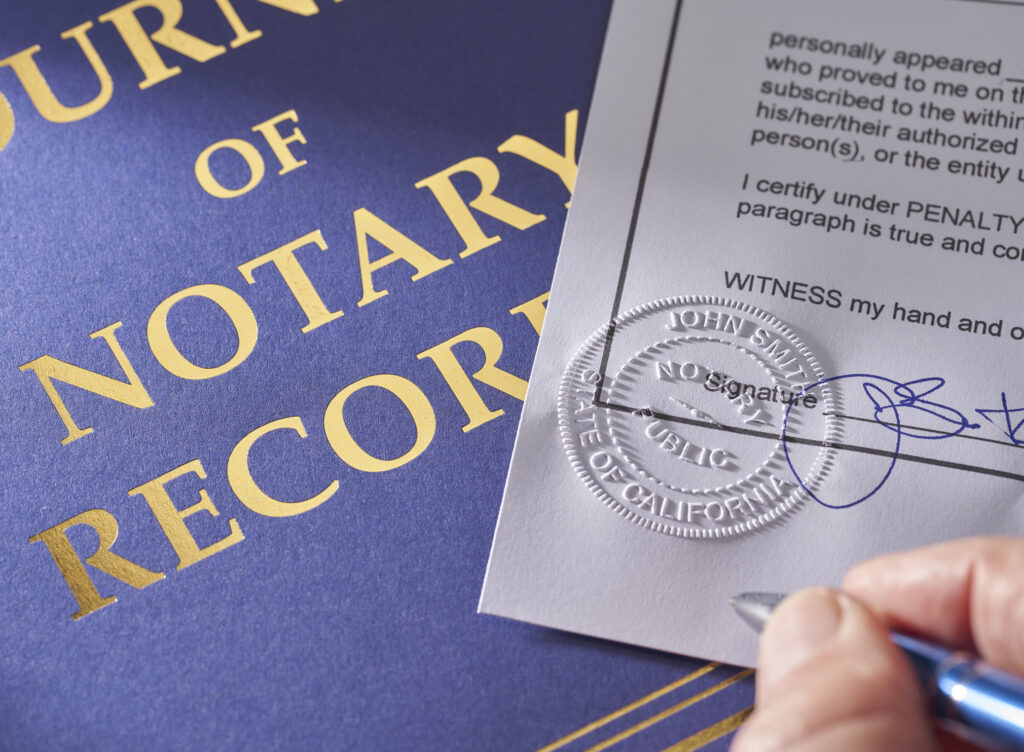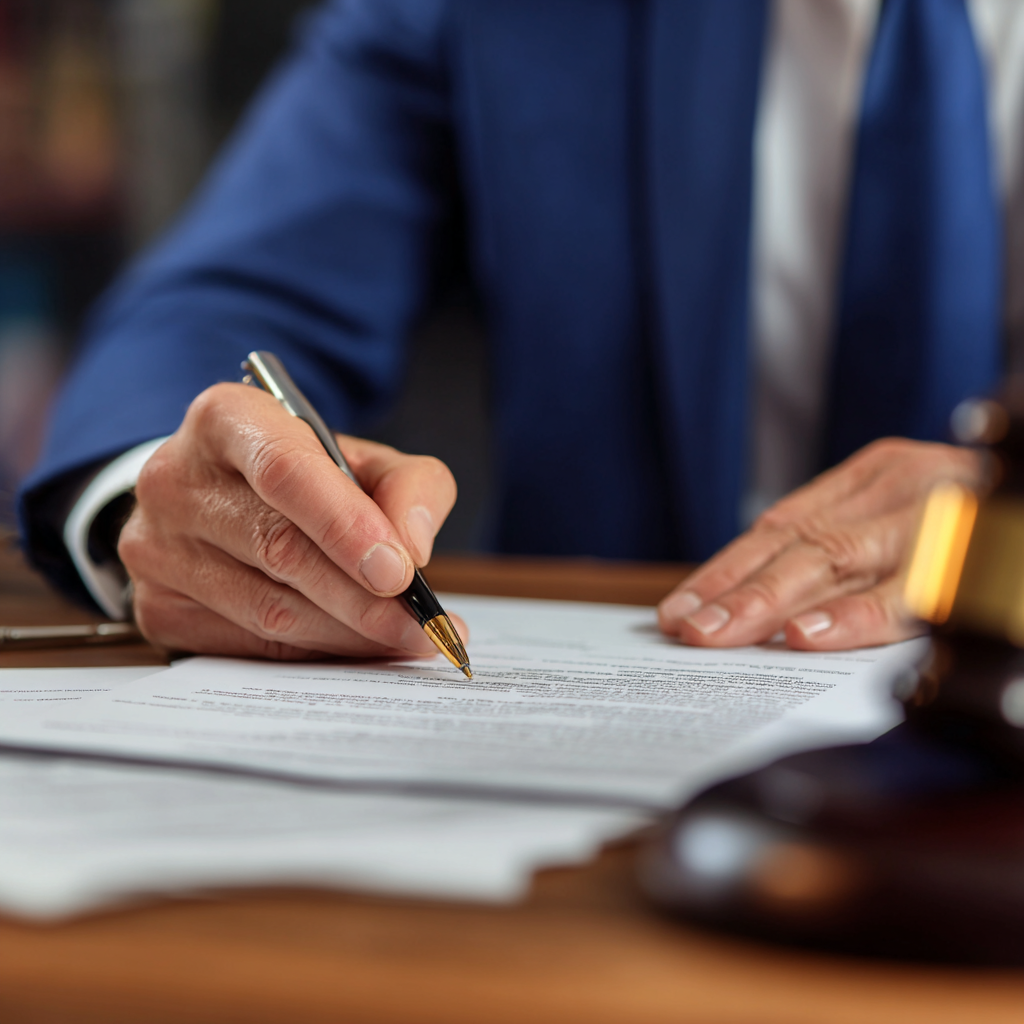The role of a notary public is one of responsibility, impartiality, and integrity. As the authority tasked with witnessing and certifying legal documents, notaries are critical in society, ensuring the legitimacy and validity of important agreements. But can a notary notarize their own documents?
This article explores this exact topic – breaking down the general rule, possible exceptions, and the ethical standards that every notary public is expected to uphold.
Learn also: How to become a notary in 7 steps
So – can a notary notarize their own documents?
The question at hand delves into an essential aspect of notary practice: impartiality. The general rule in the notarial profession is that a notary cannot notarize their own documents.
This rule exists because objectivity is a fundamental principle of notarial work, which becomes compromised when the notary has a personal stake in the document.
When considering if a notary can notarize their own documents, it’s essential to understand why impartiality and objectivity are core values. Without these principles, the authenticity and credibility of notarized documents would be at risk. Be mindful that this general rule applies to all forms of notarization – whether the document pertains to property, financial matters, international formalities, or personal relationships.
Why the service of a notary public matters

A notary public is an individual appointed by the state to serve as an impartial witness to the signing of documents. Their primary role is to confirm the identity of signers, ensure their willingness to sign without coercion, and assess their understanding of the document’s content. A notary’s official seal and signature signify that a document has been properly verified and is now a reliable legal record.
In modern society, notaries public play a vital role in safeguarding transactions, particularly when it comes to deeds, affidavits, wills, contracts, and powers of attorney. Their involvement helps prevent fraud, ensuring the legitimacy of documents that individuals and businesses rely upon.
Some examples of documents a notary cannot notarize for themselves
- Deeds: Notaries are prohibited from notarizing deeds that involve property in which they have an interest.
- Wills: Notaries cannot notarize their own wills or those that name them as beneficiaries.
- Powers of Attorney: Personal involvement disqualifies a notary from notarizing powers of attorney where they are listed as agents.
- Affidavits: Affidavits or sworn statements cannot be notarized by the individual signing them.
Are there situations where a notary can notarize their own documents?
In rare cases, exceptions may allow a notary to notarize documents that are closely related to them, provided there is no direct personal benefit. For instance, some jurisdictions may permit notaries to notarize documents for family members, with strict limitations. While the answer is almost always “no”, family-related exceptions can sometimes apply depending on the state.

Additionally, business documents might sometimes fall into an ambiguous zone. If a notary public owns a business, they may be able to notarize routine documents not directly benefiting them, such as those for standard business transactions or other third-party agreements. Nonetheless, local laws govern these specific cases, and notaries are strongly encouraged to follow their jurisdiction’s guidelines to avoid conflicts.
Common misconceptions and myths
One of the most common misconceptions about notarization is the belief that self-notarization is acceptable for minor documents or personal use. This is a dangerous misconception that can lead to legal problems down the line.
It’s important to remember that a notary public’s role is to verify the identity of the signer, witness the signature, and ensure that the signer is acting voluntarily. Self-notarization eliminates these essential safeguards. While it may seem convenient, it can invalidate documents and lead to serious consequences.
Another common myth is that notaries have unlimited power. While notaries play a crucial role in legal processes, they are not above the law – and they must adhere to strict ethical guidelines and legal regulations. Misusing their authority or engaging in unethical practices can result in severe penalties, including the loss of their notary commission.

While all notaries are legally authorized to perform notarizations, their experience, knowledge, and commitment to ethical practices can vary significantly. It’s advisable to choose a reputable notary with a good track record to ensure the validity and security of your documents.
When you need a reliable and trustworthy notary, Mobile Notary Orlando is the place to go! Our team of experienced and certified notaries is dedicated to providing top-quality service. We understand the importance of accuracy and professionalism in notarization, and we strive to exceed your expectations.
By choosing Mobile Notary Orlando, you can rest assured that your documents will be handled with the utmost care. Our notaries are equipped with the knowledge and skills to handle a wide range of notarization needs, from simple document signings to complex legal transactions!
The importance of ethical conduct in notarial practice
Maintaining an ethical standard is essential for all notaries, as it reinforces public trust and assures clients that notarial services are conducted responsibly. Ethical lapses can lead to severe repercussions, including the loss of a notarial commission, legal penalties, and damage to a notary’s professional reputation. Notaries should remember that their duty to maintain ethical conduct is vital, not only for their reputation but also for the integrity of the notarial profession.

Consequences of violating notary rules include:
- Loss of Notary Commission – States hold notaries accountable for maintaining integrity, and failure to adhere to ethical guidelines may result in the revocation of a notary’s commission;
- Legal Penalties – Violations may lead to fines, and in severe cases, criminal charges for actions such as fraud;
- Damage to Professional Reputation – Once trust is broken, it can be challenging for a notary to regain credibility, impacting future business and client relationships.
When in doubt, seek professional guidance!
At the end of the day, a notary can’t notarize their own documents – since they are expected to remain impartial at all times.
In the world of notarial services, guidelines can sometimes appear complex or ambiguous, especially when interpreting laws that vary by state or jurisdiction. Although many laws clearly define that notaries cannot notarize their own documents, certain exceptions and specific situations might require professional advice. Consulting with an attorney or legal expert can clarify regulations and ensure compliance, reducing the risk of misunderstandings or accidental violations.
If you’re seeking reliable and ethical notary services, consider reaching out to a trusted professional at Mobile Notary Orlando. A qualified notary can guide you through notarization with confidence, ensuring every document is treated with integrity and impartiality.






